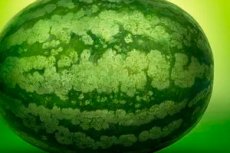Medical expert of the article
New publications
Watermelon when breastfeeding
Last reviewed: 04.07.2025

All iLive content is medically reviewed or fact checked to ensure as much factual accuracy as possible.
We have strict sourcing guidelines and only link to reputable media sites, academic research institutions and, whenever possible, medically peer reviewed studies. Note that the numbers in parentheses ([1], [2], etc.) are clickable links to these studies.
If you feel that any of our content is inaccurate, out-of-date, or otherwise questionable, please select it and press Ctrl + Enter.

After pregnancy, a long period of breastfeeding begins, which also leaves its mark on the life, nutrition, and daily routine of the mother. Thus, the diet changes significantly. Now it is necessary to take into account that everything that the mother eats will certainly get into the milk, and along with it - into the baby's body. It would seem that everything is extremely simple: food should be healthy, rational, balanced. But still, there are many questions that do not cease to worry young mothers. For example, one of the questions: "Can a nursing mother eat watermelon?" To answer this question for sure, you need to know exactly how watermelon works during breastfeeding. Let's look into this issue.
Benefits of watermelon
Let's first consider what a watermelon is, what its composition is, how it affects the body, whether it is beneficial or harmful to the human body. It is impossible to answer this question unequivocally. Firstly, the concept of "benefit" is very relative. Secondly, it is necessary to take into account that each person's body is different, individual. What is beneficial for one person can be definitively harmful to another.
Thus, the largest part of the watermelon is represented by the liquid part (it contains a large amount of juice). This liquid contains a large amount of vitamins, important microelements and minerals. They affect the biochemical cycle of the body. Also, the watermelon consists of a large number of essential amino acids, carbohydrates. It is a rich source of energy, enriches the body with essential components, which are then used as building material for the body.
It is worth noting separately the ability of watermelon to have a cleansing effect on the body. It acts as a sorbent that accumulates, neutralizes, and subsequently removes from the body various toxins, metabolites, waste products, toxins that have accumulated in the body. Excretion occurs through the kidneys, with urine. Here we can immediately note a dual effect. On the one hand, there is an intensive cleansing of the body, cleansing of the liver and kidneys. This is a reliable prevention of urolithiasis, prevents the development of kidney disease, reduces the load. Also, stones and sand are removed from the kidneys, which prevents the development of accumulation of stones and sand in the kidneys.
The harm is that with kidney diseases, there is an excessive load on the kidneys. Accordingly, a person who already has kidney problems has an increased load on them. Accordingly, inflammatory diseases develop. Current kidney and liver diseases can worsen. Then this entails diseases of the entire digestive tract.
Another benefit is that watermelon cleanses the blood, helps cleanse the skin, its surface and internal layers. Removing toxins, as well as autoantibodies, reduces the body's aggression against its own tissues, which normalizes the state of the immune system. A normal state of the immune system increases the body's resistance, increases its endurance, reduces the risk of developing infectious, inflammatory, rheumatic diseases, and the development of arterial hypertension. [ 1 ] The risk of developing allergic reactions decreases, relieves muscle pain. [ 2 ], [ 3 ] Reduces body weight, body mass index (BMI) and blood pressure due to daily consumption of watermelon. [ 4 ]
Watermelon during breastfeeding in the first month
As you know, watermelon is very useful for the body. Of course, there are certain contraindications that need to be taken into account. But all products and substances have contraindications.
As for the use of watermelon in the first month of breastfeeding, the situation is ambiguous. It is necessary to take into account the fact that watermelon will affect not only the mother's body, but also the child's body. There are no direct contraindications to the use of watermelon for a child. Everything depends on the individual characteristics of the body, tolerance. Therefore, it is possible to find out whether a nursing mother can eat watermelon only experimentally. It is quite simple to check how the child's body will react: the mother should eat a small piece of watermelon, and about 30-40 minutes later feed the child. During this period of time, all the substances will have already penetrated into the milk. Then you need to wait about 2-3 hours to completely make sure that the child tolerates watermelon normally. So, if during this period the child did not develop rashes, intestinal colic, cough, did not have an increase in body temperature, and did not have any other unfavorable and alarming consequences, watermelon can be safely consumed during breastfeeding. The main thing is to observe moderation in everything, since excessive abuse can also have an adverse effect on health.

